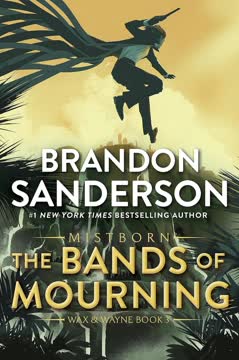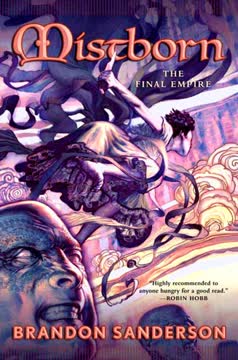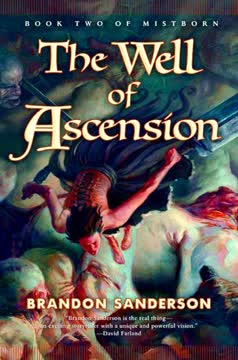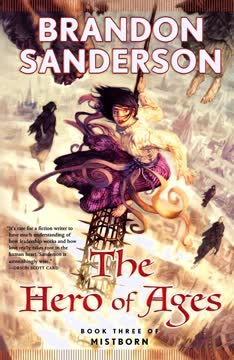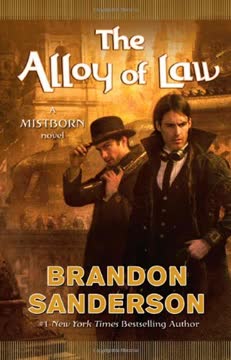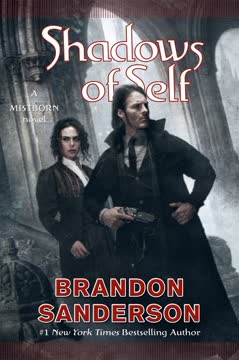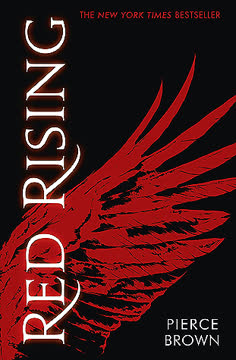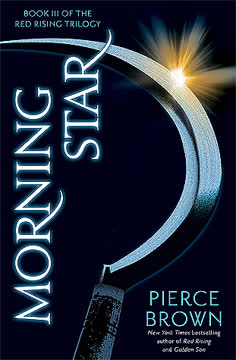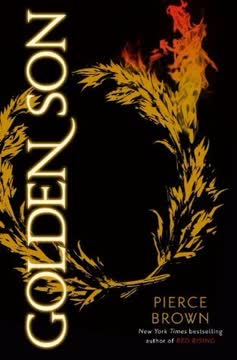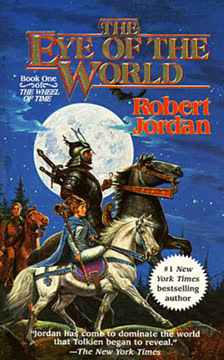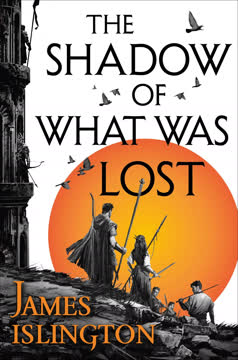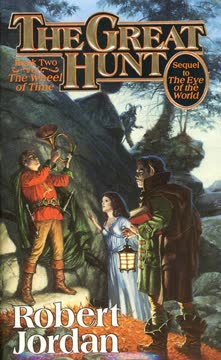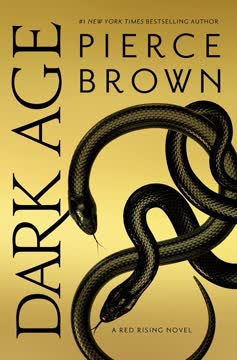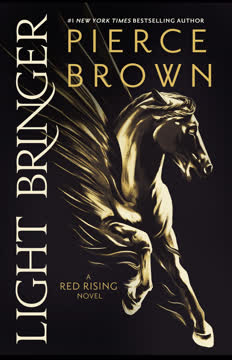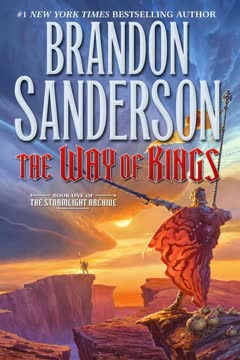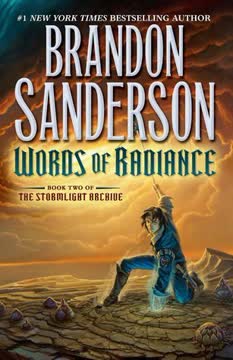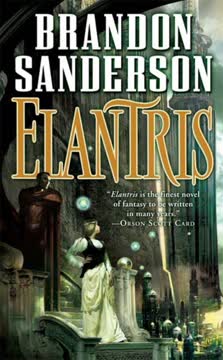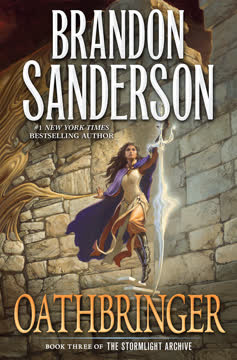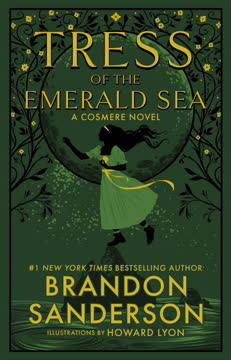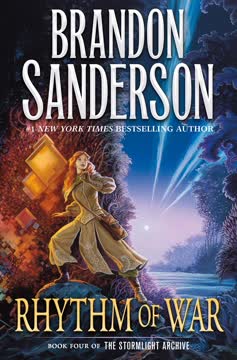Plot Summary
Shadows of the Past
Waxillium "Wax" Ladrian's earliest memories are of being an outsider, torn between his Terris heritage and noble upbringing. As a youth, he's desperate to do what's right, but finds the world's rules and people's hearts far more complicated than he wishes. A traumatic incident—uncovering a friend's crime and the community's refusal to act—plants in him a lifelong obsession with justice, but also a sense of alienation. This duality of duty and freedom shapes his adulthood: a lawman's drive to protect, but also a man haunted by the impossibility of ever truly belonging. The prologue's emotional resonance lingers, setting the tone for a story where right and wrong are never simple, and the past's shadows stretch long into the present.
Interrupted Vows and Intrigue
Wax's attempt at a second marriage to the meticulous Steris is upended by both farce and fate. A sabotaged water tower floods the ceremony, but the true disruption comes from Harmony's kandra, VenDell, who pleads for Wax's help. Still grieving his first wife's death and wary of divine manipulation, Wax refuses—until a photograph reveals his long-lost sister, Telsin, in the clutches of his criminal uncle. The emotional weight of duty, loss, and unresolved family ties compels Wax to accept a new mission. The chapter's blend of humor, heartbreak, and cosmic meddling sets the stage for a journey where personal stakes and world-shaking secrets collide.
Kandra's Plea, Lawman's Dilemma
VenDell and MeLaan, immortal kandra, reveal a desperate need: recover a missing spike to restore their brother's mind, and investigate the possible rediscovery of the Bands of Mourning—mythic bracers said to grant the Lord Ruler's powers to any bearer. Wax, Marasi, Wayne, and Steris are drawn into a web of ancient lore, new technology, and the threat of Hemalurgy—magic that steals abilities through murder. The team's dynamic is tested: Marasi seeks her own worth, Wayne masks pain with humor, and Steris's lists hide vulnerability. The chapter's tension lies in the collision of the mundane (wedding plans, ledgers) with the mythic, as the heroes are forced to confront both their own limitations and the possibility of world-altering power.
The Train Heist Gambit
En route to New Seran, the team's train is attacked by a gang using both brute force and mysterious Allomantic technology—a cube that can steal or replicate powers. The robbery is more than it seems: a distraction, a test, and a warning. Wax's skills are pushed to the limit as he battles both ordinary thugs and Metalborn assassins, while Marasi and Steris prove their mettle under fire. The attack's aftermath leaves the group shaken, with new questions about the Set's reach and the emergence of devices that could change the balance of power. The emotional core is Wax's growing realization that his enemies are always one step ahead, and that the cost of failure is not just personal, but societal.
Medallions and Mysteries
Arriving in New Seran, the group uncovers evidence of medallions from the mysterious Southern peoples—artifacts that grant anyone Allomantic or Feruchemical abilities. The city simmers with political tension, as outer cities chafe under Elendel's rule. Wax and Steris navigate high society's treacherous waters, seeking clues at a lavish party, while Marasi and Wayne dig into graveyard secrets and the black market. The medallions' existence hints at a world far larger and more complex than anyone imagined, and the Set's ambitions now threaten not just Elendel, but the very nature of power itself. The chapter's emotional arc is one of awe and anxiety, as the heroes realize they are outmatched by both technology and ambition.
The Southern Stranger
Infiltrating the Set's secret facility, the team rescues Allik, a masked Southerner whose people survived the Catacendre with the Lord Ruler's help. Allik's medallions and tales of flying ships, the Sovereign, and the Bands of Mourning upend everything the heroes thought they knew. The group flees in a skimmer, pursued by the Set and their own doubts. Allik's warmth and vulnerability contrast with the cold pragmatism of the Set, and his faith in the "Metalborn" is both touching and tragic. The emotional heart is the forging of unlikely alliances, and the dawning realization that the world's future may depend on understanding—and reconciling with—the past.
The Set's Secret Weapon
Guided by Allik, the heroes race to a hidden temple in the mountains, pursued by Suit (Wax's uncle) and the Set. The journey is fraught with peril: Telsin's true allegiance is revealed as she betrays Wax, shooting him and seizing the Bands. The temple itself is a labyrinth of traps and deceptions, designed to test not just strength, but character. The Set's use of Hemalurgy and their willingness to sacrifice anything for power is contrasted with the heroes' loyalty and sacrifice. The emotional climax is Wax's apparent death, and the shattering of trust within the group.
Betrayals in the Snow
As Suit and Telsin seize what they believe are the Bands, Marasi's insight reveals the true artifact hidden in plain sight. She wields the Bands' power, but chooses not to keep it, instead reviving Wax. The emotional core is the confrontation with mortality, faith, and the meaning of heroism. Wax's near-death encounter with Harmony forces him to confront his own self-loathing and the burden of duty. The group's unity is tested and reforged, as they face the Set's final gambit and the threat of annihilation.
The Temple of Deceit
The temple becomes a battleground as the heroes, the Set, and the Southerners clash. Wayne's pain and loyalty are laid bare as he faces Telsin, while MeLaan's near-destruction underscores the cost of power. The Bands' power is both a blessing and a curse, and the decision to relinquish it to the kandra reflects a hard-won wisdom. The emotional resolution is bittersweet: victory comes at a price, and the wounds—physical and psychological—will not heal easily.
The Bands Unbound
With the Set defeated (for now), the Southerners reclaim their ship, and a fragile peace is brokered. Wax and Steris's relationship deepens, grounded in mutual respect and vulnerability. Marasi finds her own path, choosing not to be defined by others' expectations. The world is forever changed: airships, medallions, and the promise (and threat) of new powers. The emotional arc is one of hope tempered by loss, as the heroes look to the future with both excitement and trepidation.
Death, Divinity, and Duty
Wax's near-death vision of Harmony is a reckoning with faith, guilt, and the nature of godhood. Harmony's refusal to intervene, and his insistence on trust and choice, force Wax to accept both his own limitations and his capacity for greatness. The emotional climax is Wax's acceptance of himself—not as a tool of duty, but as a man who chooses to do what is right, even when it hurts. The chapter's resonance lingers, as the boundaries between mortal and divine, freedom and responsibility, are blurred.
A New Age Dawns
The heroes return to Elendel aboard the airship, greeted as both saviors and harbingers of change. Wax and Steris marry in a quiet, heartfelt ceremony, choosing love over obligation. Marasi, now a leader in her own right, investigates the deeper mysteries of Trell and the Faceless Immortals, hinting at greater threats to come. The Set's defeat is not total—Telsin escapes, and Suit's fate is sealed by powers beyond mortal ken. The emotional resolution is one of cautious optimism: the world is larger, more dangerous, and more wondrous than ever, and the heroes are ready to face whatever comes next.
Characters
Waxillium "Wax" Ladrian
Wax is a man divided: a Terris-born noble, a lawman of the Roughs, and a reluctant aristocrat. His psyche is shaped by childhood alienation, a desperate need to do right, and the trauma of loss—especially the death of his first wife, Lessie. Wax's sense of justice is both his strength and his curse, driving him to protect others but also to self-destructive guilt. His relationship with Steris evolves from duty to genuine affection, as he learns to accept vulnerability and partnership. Wax's journey is one of self-forgiveness, as he confronts the limits of law, the ambiguity of good and evil, and the burden of being both a hero and a man.
Steris Harms
Steris is the embodiment of order: lists, contingency plans, and social propriety. Beneath her reserved exterior lies a deep well of insecurity and longing for acceptance. Her relationship with Wax begins as a political arrangement but grows into a partnership of equals, where her strengths—organization, foresight, and quiet courage—prove invaluable. Steris's arc is one of self-acceptance: she learns that her "uselessness" is an illusion, and that love and heroism can take many forms. Her dry wit and unexpected emotional depth make her a linchpin of the group.
Marasi Colms
Marasi is driven by intellect, curiosity, and a desire to prove herself beyond her famous half-sister's shadow. Her journey is one of self-definition: from aspiring lawkeeper to independent leader, she grapples with feelings of inadequacy and the weight of others' expectations. Marasi's analytical mind and empathy allow her to see solutions others miss—most notably, discovering the true Bands. Her refusal to seize ultimate power, and her choice to help others instead, mark her as a new kind of hero: one who values wisdom over glory.
Wayne
Wayne's irreverence and penchant for disguise mask deep wounds: guilt over past violence, unrequited love, and a sense of not belonging. His humor is both shield and sword, defusing tension but also hiding pain. Wayne's relationship with Wax is brotherly, defined by loyalty and mutual rescue. His arc is one of gradual healing, as he learns to forgive himself and accept that heroism can mean restraint as much as action. Wayne's moments of insight and sacrifice reveal a depth beneath the jokes.
MeLaan
MeLaan is ancient, adaptable, and often irreverent, but her immortality is tinged with loneliness and existential uncertainty. Her ability to change form and survive trauma makes her invaluable, but also sets her apart from mortals. MeLaan's interactions with the group—especially Wayne—highlight her longing for connection and her struggle to understand humanity. Her near-destruction and restoration underscore the costs of immortality and the value of memory and identity.
Edwarn "Suit" Ladrian
Wax's uncle, Edwarn, is the architect of the Set's schemes: breeding Metalborn, harnessing Hemalurgy, and seeking ultimate power. His psyche is defined by a belief in order through control, and a willingness to sacrifice anything for his vision of a new world. Edwarn's relationship with Wax is twisted: part rivalry, part paternal disappointment. His downfall is rooted in hubris and an inability to understand the true nature of power and loyalty. He is both a mirror and a warning to Wax.
Telsin Ladrian
Telsin is Wax's long-lost sister, initially presented as a victim but revealed as a high-ranking member of the Set ("Sequence"). Her psyche is complex: shaped by childhood ambition, resentment, and a desire for agency. Telsin's betrayal is both personal and ideological, as she seeks to shape the world on her own terms. Her survival and escape leave her as a lingering threat, a symbol of the costs of both trust and ambition.
Allik Neverfar
Allik is a masked Southerner, rescued from captivity, whose warmth and faith contrast with the cynicism of the Basin's heroes. His medallions and stories introduce new magic and cultures, expanding the world's horizons. Allik's vulnerability and gratitude make him both a source of comic relief and a poignant reminder of the costs of survival. His presence challenges the heroes to rethink their assumptions about civilization, power, and faith.
VenDell
VenDell is a kandra obsessed with knowledge, protocol, and the preservation of his kind. His interactions with mortals are tinged with both condescension and genuine need. VenDell's quest to recover his brother's spike is both a personal and existential mission, highlighting the fragility of even immortal beings. His role as Harmony's messenger places him at the intersection of divine will and mortal agency.
Harmony
Harmony (Sazed) is the god of Scadrial, embodying both Preservation and Ruin. His psyche is marked by compassion, regret, and the impossibility of perfect intervention. Harmony's refusal to solve every problem, and his insistence on trust and free will, force the heroes—and readers—to confront the limits of both divinity and humanity. His relationship with Wax is paternal, challenging, and ultimately redemptive.
Plot Devices
Duality of Duty and Freedom
The narrative is structured around Wax's conflict between personal duty and the desire for freedom—a theme echoed in the world's political and magical upheavals. The story uses parallel plotlines (wedding, kandra quest, Set's schemes) to explore how choices, both personal and collective, shape destiny. The motif of "the right thing" versus "the necessary thing" recurs, forcing characters to confront the costs of heroism.
Foreshadowing and Misdirection
The temple's traps and the false Bands are mirrored by the Set's deceptions and the world's hidden histories. The narrative repeatedly sets up expectations—about characters, artifacts, and motives—only to subvert them, forcing both characters and readers to question appearances. The use of photographs, medallions, and ancient lore as clues creates a detective story within the epic, rewarding insight and humility.
Expanding Worldbuilding
The introduction of Southern medallions, flying ships, and new forms of Investiture signals a shift from a closed, familiar world to one of global (and even cosmic) complexity. The plot uses these elements not just as spectacle, but as catalysts for character growth and political change. The tension between tradition and innovation, isolation and connection, is embodied in both the heroes' journey and the world's transformation.
The Cost of Power
The story interrogates the nature of power: who deserves it, how it is gained, and what it costs. Hemalurgy's horror, the temptation of the Bands, and the Set's willingness to sacrifice anything for control are contrasted with the heroes' restraint and self-doubt. The narrative structure uses moments of ultimate power (Marasi wielding the Bands, Wax's resurrection) to ask whether heroism lies in seizing power or in relinquishing it.
Cyclical Structure and Legacy
The plot is cyclical: ancient wrongs resurface, old powers are rediscovered, and the heroes' choices echo those of the Lord Ruler and the original survivors. The use of memory (copperminds, kandra, Harmony's perspective) blurs the line between past and present, suggesting that history is both a burden and a guide. The ending's open threads—Telsin's escape, Trell's threat—promise that the cycle will continue, shaped by new choices.
Analysis
The Bands of Mourning is a masterful blend of adventure, mystery, and philosophical inquiry, using the trappings of steampunk fantasy to explore timeless questions of power, responsibility, and identity. Sanderson's narrative interrogates the nature of heroism—not as the triumph of the strong, but as the willingness to choose duty over comfort, to forgive oneself, and to trust others. The book's world is in flux: new technologies and magics threaten to upend old certainties, and the boundaries between cultures, classes, and even gods are dissolving. The heroes' victories are hard-won and incomplete, marked by loss, betrayal, and the knowledge that every solution creates new problems. The lesson is clear: progress is both exhilarating and perilous, and the true test of character is not in seizing power, but in knowing when to let go. The Bands of Mourning stands as a testament to the enduring power of choice, the necessity of trust, and the unending quest for meaning in a world where even gods must learn to hope.
Last updated:
Review Summary
The Bands of Mourning receives high praise from readers, with many considering it the best in the Mistborn Era 2 series. Fans appreciate the character development, especially for Steris, and the expansion of the world and magic system. The book's fast-paced action, humor, and plot twists keep readers engaged. Many reviewers express excitement for the next installment and admiration for Sanderson's writing skills. Some readers found the first half slower but were captivated by the intense finale and surprising epilogue.
The Mistborn Saga Series
Similar Books
Download PDF
Download EPUB
.epub digital book format is ideal for reading ebooks on phones, tablets, and e-readers.
